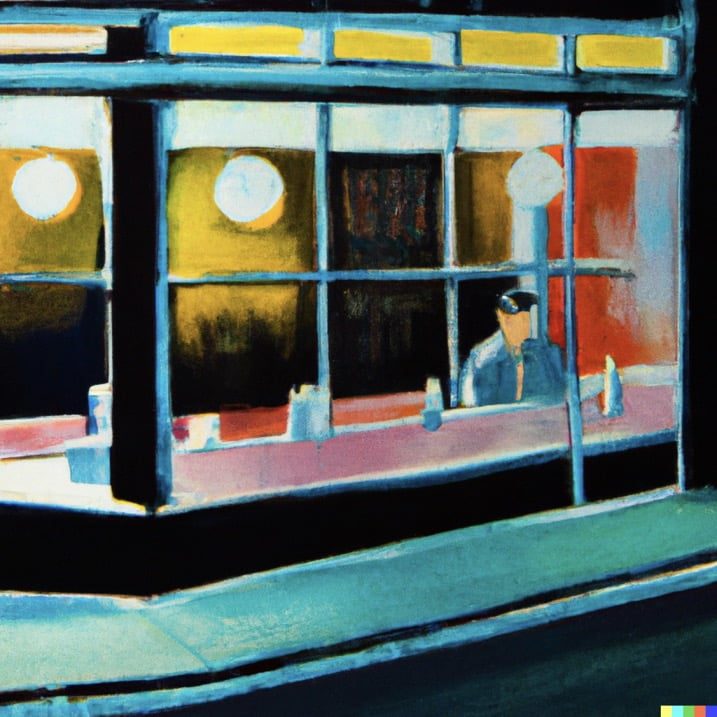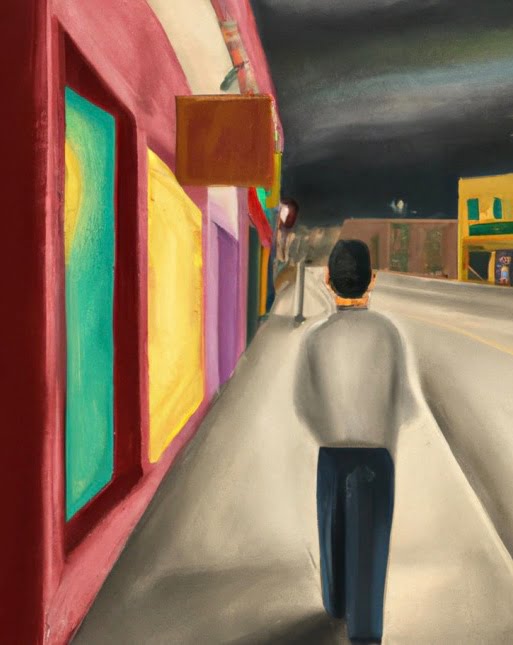Table of Contents
High-functioning Borderline Personality Disorder (High-functioning BPD) is the result of multiple defence mechanisms such as splitting, dissociation, counter-dependency and avoidance of feelings. People with high functioning BPD suffer just as much from painful symptoms such as mood swings, emptiness, fear of abandonment, but are hiding their pain and inner turmoils.
In recent years, mental health awareness about Borderline Personality Disorder has increased significantly. Although BPD is still highly stigmatised, more people are aware of its debilitating effect, and the need to offer sufferers support before it is too late. Having High-functioning BPD or ‘Quiet’ BPD, however, can mean you have suffered for years in silence without anyone ever noticing or reaching out to help.
In the same way that no two people are alike, no two people with BPD symptoms are alike. The spectrum of different signs and the considerable diversity amongst BPD sufferers can be misleading. Since most people are only aware of what a ‘stereotypical’ person with BPD looks like, those who ‘act in’, instead of ‘act out’ their pain are often neglected and left to suffer in silence.
Within the mental health system, those with the most dramatic, ‘externalised’ symptoms, such as violent behaviours or suicidality, are prioritised. Many professionals, especially when operating under the pressure of high caseloads and limited resources, forget to spare a thought for those with High-functioning Borderline Personality Disorder (High-functioning BPD).
When you have High-functioning BPD, you may not demonstrate stereotypical symptoms like anger outbursts all the time. You may be able to hold down a job or sustain friendships. Your BPD symptoms come out only in ‘pockets’— in certain relationships or when triggered by particular events. On the surface, you may be calm, friendly, efficient. Others may see you as a confident and competent person at work, but behind the scenes, you suffer from intense shame and self-hate. It may be that your arms and legs are covered with scars from self- harming, but most people only see the positive image you project.
Many people with high functioning BPD have the experience of going through a mental health assessment with a psychiatrist or social worker in the public health system, only to be told that they are not ‘sick enough’ to receive any follow-up. Unfortunately, this can re-traumatise them and reinforce the beliefs and ‘schemas’ that are keeping them in isolation in the first place— they are further convinced that they are not worthy of help, other people ‘should’ be a priority, and that they ought to feel guilty for having reached out.

“But a mermaid has no tears, and therefore she suffers so much more.”
― Hans Christian Andersen
The Psychological Dynamics of High-Functioning BPD
Even within the umbrella term ‘High-functioning BPD,’ we cannot make brushstroke statements about how anyone with High-functioning BPD would look, behave or feel. High-functioning BPD is the result of multiple complex psychological mechanisms, such as a split of ego-states, dissociation, experiential avoidance and fear of anger. Here, we will address some of these psychological mechanisms that cause and perpetuate High-functioning BPD. If you suspect this is what you have, I hope some of the following information will be helpful to you.
How High-Functioning BPD Begins — A Split In Your Psyche
Most people who suffer from BPD have experienced complex trauma (C- PTSD) in their childhood. Unlike ‘shock trauma’ that can be seen and clearly defined (e.g. war-trauma or a car accident), what you have suffered is likely invisible and insidious. You may have been emotionally abused, chronically neglected, dragged into dysfunctional family dynamics or burdened with too many responsibilities. Even if no one had intentionally tried to hurt you, you might have witnessed physical or verbal violence or experienced early separation trauma. Just because what you have suffered is invisible does not make it illegitimate. When your psyche is burdened with too much, too soon, it has to find a way to cope. One way of doing this is to create a ‘split’ in your psyche, so a part of you is given the task of carrying and containing the overwhelming trauma, while the rest of you can go on with life as though things are normal.
After the psychic split, the ‘traumatised part’ of you stays stuck and regressed like a little child. This part of you is frozen in shock and confusion. It has the emotional reality and cognitive ability of a child. They are not confident in the world, feel scared to leave the house and avoid facing people’s judgement. They do not have the ability to grasp abstract concepts, are intolerant of ambiguity, and perceive the world in a black-and-white manner. They are perpetually anxious and confused. You may see yourself feeling or acting in these ways when you are emotionally triggered, or in times of extreme stress.
The other part of you, however, becomes ‘over-developed’; like a brave soldier, it leaps into adulthood and marches on with life. This part of you is productive, efficient, ambitious and competent. They are highly responsible and overly grown-up. Believing that there is no one they can trust in the world; they absolutely have to stand on their own two feet. Their identity of being a ‘strong person’ is what they count on for a sense of security.
The difficulty with High-functioning BPD is that people only see the competent, ‘normal’ part of you. Since our society praises, encourages, and reinforces that, it is easy for it to become the default mask you wear in the world. When there is ‘parentification’ in the family— a ‘role reversal’ between you and your parents, being highly competent is the way you win love and recognition. Your high-functioning side knows it carries the job of keeping you safe in the world, so it has no choice but to work harder and stay tough, even at the hefty price of forgoing spontaneity, intimacy and creativity.
With a split in your psyche, you raise the conundrum of having a mind that is capable of intellectually understanding what’s going on, and emotions that are disproportionately reactive to distressing triggers. Behind the scenes, you may have social anxiety, agoraphobia, uncontrollable rage, unexpected bursts of depression, addiction and compulsive tendencies. These symptoms erupt when you are on your own or when you let your guard down, but you are left to deal with them in isolation. They are, in essence, the voice of your inner scared child; they are trying to reach out, protest, and seek your attention. Unfortunately, the high-functioning side of you has become far too competent at pushing down her needs. Eventually, the gulf in your psyche between the two sides widens, and the wounds of your inner child become further hidden.
But just because your hurt and rage are suppressed does not mean they have disappeared. Without a healthy channel for your wounds to be processed, digested and let out, they become increasingly poisonous to you. Just like a house that has been infested, no one sees what has been slowly rotting until the pillars break and the ceiling falls. Until the day you collapse in a crisis, most people do not see your vulnerability and how much it takes for you to put on a stoic face.
“There is the solitude of suffering, when you go through darkness that is lonely, intense, and terrible. Words become powerless to express your pain; what others hear from your words is so distant and different from what you are actually suffering.”
― John O’Donohue
Counter-dependency as a Defence
Counter-dependency is a hallmark symptom of High-functioning BPD. Most people have heard of ‘co-dependency’, which normally refers to a dysfunctional and enmeshed relationship between two people, where one person is overly responsible for the others’ emotional world, creating a merger between the two psyches. ‘Counter-dependency’ can be thought of as the other side of the coin, as it often begins as a defence against being engulfed and subsumed by others. In counter-dependency, you become incredibly self-reliant; So much so that it is unthinkable that anyone would be there to take care of you and to comfort you. In fact, having to be dependent on anyone makes you feel unsafe and overly-exposed.
The root of counter-dependency is the fear of annihilation. On the one hand, you fear that if anyone comes too close to you, you will be too attached and lose yourself. It could be that you had very vulnerable, needy and overbearing parents; and that their need to intrude on your life caused you to feel engulfed for the first half of your life. Perhaps they had a need to be ‘one’ with you, or their dependency on you robbed you of life opportunities. Thus, you now do anything you can to keep people at arm’s length to avoid losing your personal space or freedom.
On the other hand, counter-dependency can also result from repeated disappointment in childhood. If your parents were cold, unemotional and neglectful, you would have learned from an early age that there is no point in reaching out or seeking help. You might have cried and protested, but were only ever met with coldness, hostility, or abandonment. A resulting worldview is that you are ultimately alone in this precarious world, and no one can be trusted or leaned on. You therefore believe you must at all times stand on your own two feet. You would not allow your high-functioning facade to crumble, for you fear that once a crack of weakness is revealed, others will take advantage of you and threaten your independence.

“I DON’T CARE!” Harry yelled at them, snatching up a lunascope and throwing it into the fireplace. “I’VE HAD ENOUGH, I’VE SEEN ENOUGH, I WANT OUT, I WANT IT TO END, I DON’T CARE ANYMORE!”
“You do care,” said Dumbledore. He had not flinched or made a single move to stop Harry demolishing his office. His expression was calm, almost detached. “You care so much you feel as though you will bleed to death with the pain of it.”
― J.K. Rowling , Harry Potter and the Order of the Phoenix
Emotional and Intimacy Anorexia
Another core mechanism that drives High-functioning BPD is ‘emotional anorexia’— difficulties in or refusal to take in necessary nourishment from love and kinship. This may be because deep down, you do not believe you deserve to be loved.
On the surface, you are friendly and open, but when examined closely, you seem only to choose people who are emotionally shut down, or not ready to commit. When others are nice to you, offering you praise or compliments, it feels uncomfortable, even unsafe, to believe them.
Many people who suffer from BPD are innately sensitive and empathic. Perhaps from a young age, you have had the repeated experience of being the one who loves too much, gives too much and commits too much. Having been hurt so many times, you now opt to restrain your passion. Your inability to trust intimacy and positive rewards acts as a shield against disappointment. The subconscious belief is that if you don’t allow yourself to be hooked, you will never become overly attached, and you will not be hurt.
Underneath emotional anorexia might also be the unconscious belief that your emotions are bad, you are ‘too much’ for others, your existence itself is a burden, or you don’t deserve a place in the world. You would rather be in pain than to affect other people, so you hold everything in.
You feel lonely, but you deny your own need for attachment. However much you want to have ‘normal’ relationships like everyone else, it feels too risky to love and let love in. Rather than risk being hurt again, you would rather stay in a state of deprivation. Unfortunately, by being ‘anorexic’ to love and affection, you are neglecting to see the gifts and qualities that others see in you. Even when others are genuinely drawn to you, they are not given a chance to get to know you.
An Invisible Emptiness in High Functioning BPD
From a young age, you love and feel a lot. Sadly, your sensitivity and empathy might have been abused rather than honoured. Adults in your life might have used you to be their emotional caretaker and counsellor, and people might have scapegoated you for your differences. If you have felt overwhelmed by intense hurt in the past, it is not surprising that to protect yourself; you have learned to do the opposite of being sensitive: to stop feeling.
As a child, you had little choice in where you lived or went to school. If your family was abusive to you or if your peers bullied you, you had no escape. Cutting yourself off from your feelings is the only escape. Alongside chronic emptiness, you may also suffer from ‘derealisation’ or ‘depersonalisation’— at times, you feel dissociated from your own body, as though you are ‘floating above’ yourself. To cut yourself off from negative feelings, you may have resorted to using addictive substances or behaviours as a part of your dissociative strategies. Eating, alcohol, compulsive behaviours, and repetitive rituals can become addictive because they function to fill an inner void. You may also have ‘selective amnesia’, where you have unconsciously ‘forgotten’ negative events in your early life, and can recall little about your childhood.
With chronic emptiness, you are watching your life go by without living it. Despite your heart’s yearning to feel alive again, whenever you try to open up, you hit a wall. Ironically, the deep sadness and loneliness that comes from such a non-living state can be as painful as, if not more painful than, the original emotional turmoil that you are trying to avoid.

“I began to understand that suffering and disappointments and melancholy are there not to vex us or cheapen us or deprive us of our dignity but to mature and transfigure us.”
― Hermann Hesse
High-Functioning BPD: Are You Waving, or Drowning?
The predicament of someone with high functioning BPD is captured in a poem by British poet Stevie Smith called “Not Waving but drowning’:
Nobody heard him, the dead man,
But still he lay moaning:
I was much further out than you thought
And not waving but drowning.
As it is poignantly put by this poem, your heart may be aching, and you may be drowning in sorrow, but every person who sees your arm thrashing above water thinks you are ‘just waving’.
At the root of High-functioning BPD is a dismemberment with a part of yourself. You have dislodged the part of you that is vulnerable, hurt and angry to the basement of your psyche, and you pretend that it was never there. Because you initiated this split, things become furthermore polarised. Your ‘inner BPD’ is forced to hold all the wounds, sorrow and rage, while the tough part of you gets increasingly rigid and cold.
High functioning BPD is a battle between your ego and your true self. Being dominated by your ego-consciousness, you feel the need to be in control all of the time. You fear that once you let in a crack, your wall will break down and you will be completely exposed. You fear that once you let in a teardrop, it will never stop and you will be subsumed by a tsunami of feelings. Underneath, you fear disintegration and losing any sense of who you are.
Therefore, the first step to healing is learning to trust yourself. You are no longer a helpless child, and you are now capable of much more. Taking a compassionate stance, you can expand your window of tolerance for a wider spectrum of life experience— both positive and negative, intense and mundane, fleeting and long-lasting.
Right now, see if you can slow down, soften your heart, and hear from the part of you that you have shoved into the shadows. At first, this may be a daunting idea, but soon you will realise it is not more difficult than nurturing a hurting child. The part of you that has been split off — your ‘splinter personality’— is waiting to be remembered, reintegrated and re-accepted into your inner family. Like a hungry child, they sometimes cry, sometimes yell and sometimes protest to get your attention. You may resent and reject these parts, and wish they would just go away, but does your soul really want to inflict further pain? If you walk past a desolate, crying child on the street, knowing they are starving for love, can you find compassion in your heart? There is a weeping child in you; rather than condemning them for being needy and intense, you can turn to them, speak to them, understand them and comfort them.
Your main task in life is not to perpetuate what was once done to you— the cruelty, misunderstanding and neglect— but to become a better parent, friend and companion to yourself. Once you have adopted a befriending stance, these crying demons will be transformed. Instead of erupting as depression and rage, they will become friendly messengers from your psyche, signalling you to slow down when you need to rest, reminding you to soften when you want to wall up, allowing you to be spontaneous when your soul wants to be expressive. At the end of this alchemical process, you will regaih your ability love, to soften, to connect with others and to feel alive.

“God uses broken things. It takes broken soil to produce a crop, broken clouds to give rain, broken grain to give bread, broken bread to give strength. It is the broken alabaster box that gives forth perfume.”
― Vance Havner
Imi Lo is a consultant and published author with extensive and international experience in mental health and psychotherapy. Her books Emotional Sensitivity and Intensity and The Gift of Intensity are available worldwide and in multiple languages. Imi has two Master’s degrees; one in Mental Health and one in Buddhist Studies. She works holistically, combining psychological insights with Eastern and Western philosophies such as Buddhism and Stoicism.
